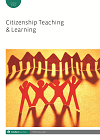
Full text loading...
 , Lea Hagoel2
, Lea Hagoel2
In recent decades, there has been growing pressure to prepare students for citizenship with an orientation to equality and participation. To engage students’ interest, it is generally recommended that teachers provide experiences of simulations, games and themed projects. There are, however, philosophical, legal, empirical and pedagogical justifications for basing citizenship education on experiential learning in which students actually perform as citizens, giving voice to their own concerns and taking appropriate action. A qualitative study introduced students in an Israeli elementary school to experiential learning of active citizenship – complete rounds of observing, thinking, doing and feeling – with the help of the model for Practising Participatory Citizenship (PPC). Students were encouraged to make suggestions for improving everyday life at school. With the guidance of PPC, small groups voiced their views, decided what needs were most urgent, planned changes and carried out their plans. Data show that the structure of PPC enabled students in groups with members of diverse ages to communicate respectfully, present reasoned arguments, take collaborative action and reflect on their accomplishments. Students acting as participating citizens were enthusiastic about the process and acquired sensitivity to the diversity of group members’ needs. There are indications that practising participation and voice throughout the years of schooling can ensure the internalization of a habitus that augers well for good citizenship in adulthood. Their teachers, however, found it difficult to stick to the role of facilitators. To enable potential facilitators to make the necessary adaptive change in their perspective, future implementations of PPC with school children could be preceded by facilitators’ intensive practice of participation and voice.

Article metrics loading...

Full text loading...
References


Data & Media loading...

Publication Date:
https://doi.org/10.1386/ctl_00127_1 Published content will be available immediately after check-out or when it is released in case of a pre-order. Please make sure to be logged in to see all available purchase options.